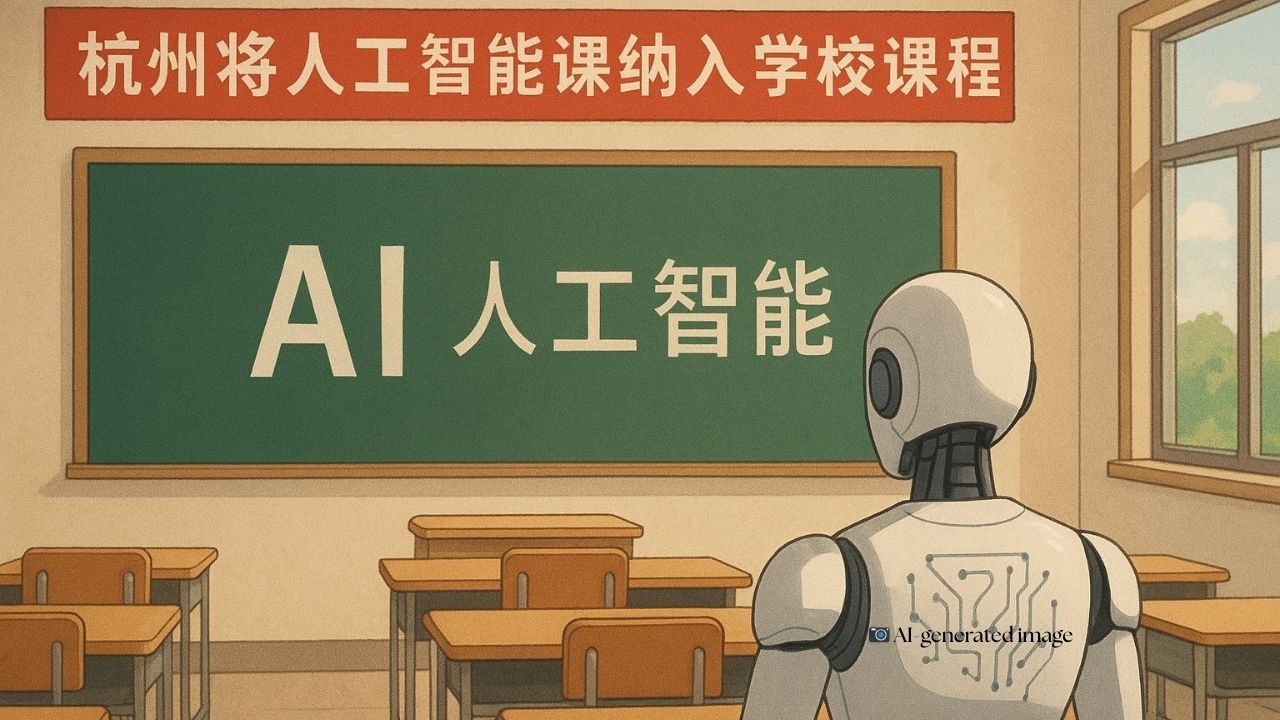Hangzhou, located in China’s Zhejiang province, will soon mandate artificial intelligence (AI) education across all primary and secondary schools beginning with the new academic term. This initiative aims to embed AI learning into standard schooling, making it a universal experience for every student.
Curriculum Design & Teaching Flexibility
The local Education Bureau has issued two comprehensive documents outlining both teaching strategies and the AI proficiency teachers must demonstrate. Schools have the discretion to deliver AI content in one concentrated week or weave it seamlessly into existing subjects like information technology and science.
Also Read | OpenAI: Half of India’s ChatGPT Users Are Students Under 24
Hands-On Learning & After-School Integration
Educators may embed AI-related projects into localised curricula, offering students with particular interests the opportunity to delve deeper through practical, project-based learning. In addition, after-school programmes may provide foundational AI activities, ensuring broader exposure.
Also Read | Apple Teams Up with Jio: To Bring RCS at No Extra Cost
Tailored Content by Grade Level
The curriculum specifies distinct expectations by educational stage:
Grades 1–2: Under teacher guidance, students will learn to identify ubiquitous AI applications in familiar settings, interact with basic AI devices, and appreciate AI’s role in daily life. Lessons at this level emphasise responsible use and data privacy.
Grades 3–4: Pupils will harness AI tools to collect relevant texts, images, and audio for both academic and everyday tasks and will craft simple AI projects under teacher supervision.
Grades 5–6: Students will begin exploring AI scenarios more deeply and gain introductory knowledge of model frameworks—such as decision trees and neural networks—as well as essential algorithmic logic like reasoning and brute-force search.
Middle School: Learners will follow the entire AI lifecycle—from data handling through model training to inference. They will apply AI to real-world problems and critically evaluate generative AI, enhancing creativity through interdisciplinary projects.
High School: At this stage, students will engage in project-based learning to build AI systems and intelligent agents, equipping them with the ability to apply AI meaningfully in everyday contexts.
Also Read | World Telecom Turns to India: Bengaluru Hosts Historic 6G Standard Talks
Annual Instructional Hour Requirement
Every student will receive a minimum of 10 hours of AI education per academic year, according to the newly announced guidelines. This measure is part of a broader effort to cultivate AI expertise in each generation—a key strategy in securing future talent for this fast-evolving field.




